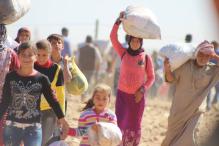This paper explores how members of the Security Council can design and implement preventive diplomatic strategies in response to emerging, escalating and acute crises. The Council’s behaviour in crisis situations is often reactive and far from strategic. Council members regularly struggle with (i) uncertainty over conflict dynamics; (ii) divergent national interests; and (iii) the lack of clear policy options for managing a situation. These limitations reflect not only the inherently chancy nature of conflict prevention – which is always an uncertain business – but also the political limitations of the Council as a factious intergovernmental body. These limits mean that the Council is often only a supporting player, or not a player at all, in preventive efforts led by States or regional organizations.
The paper provides options for building a degree of diplomatic coherence around a set of goals within the Council and with other actors, and how the Council can engage directly with actors in a conflict.


